"You can't ask the impossible of me"
After a year and a half of campaigning, the Education Magazine is questioning Minister Slob. To what extent does he himself see the need for more budget for his sector? And does he have the teacher shortage under control - as far as possible? A discussion about the importance of side entrants and 'extra extra' money.
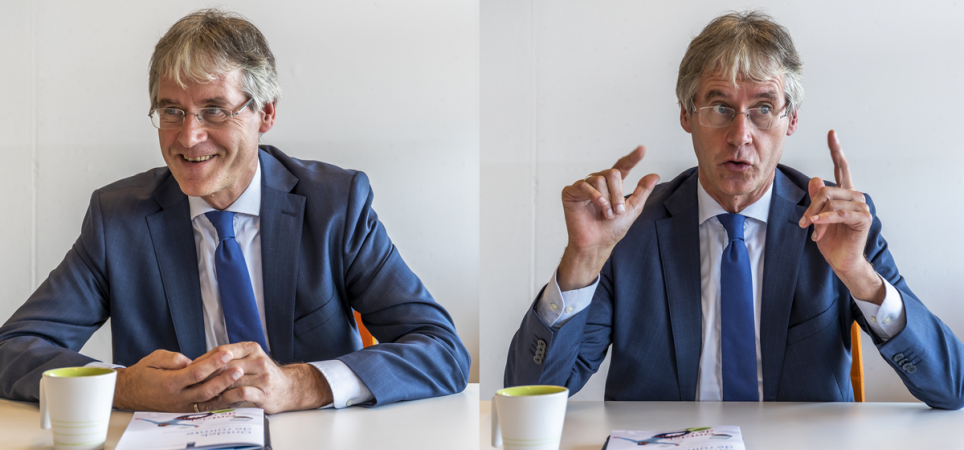
Image: Angeliek de Jonge
You invariably speak of extra investments, but the education field regards these as catching up after years of inactivity.
“I understand that there are still wishes, especially with regard to salaries. I respect that. "
But are you also doing something with it?
“Of course I have to do it with the resources that have been made available to me. And I am pleased that this cabinet is making extra money available for salaries and workload in primary education. In all the years that I have been working in The Hague, I have never seen a cabinet that made so much money available for one sector in one fell swoop. You can always have the discussion: is the glass half full or half empty? You also need to have an eye for what has been successful. The previous cabinet closed with a hole in the budget. Half of that gap has been covered by this coalition. Then it is very quickly about the half that has not been eliminated, and I understand that. But I think the whole story should be told. ”
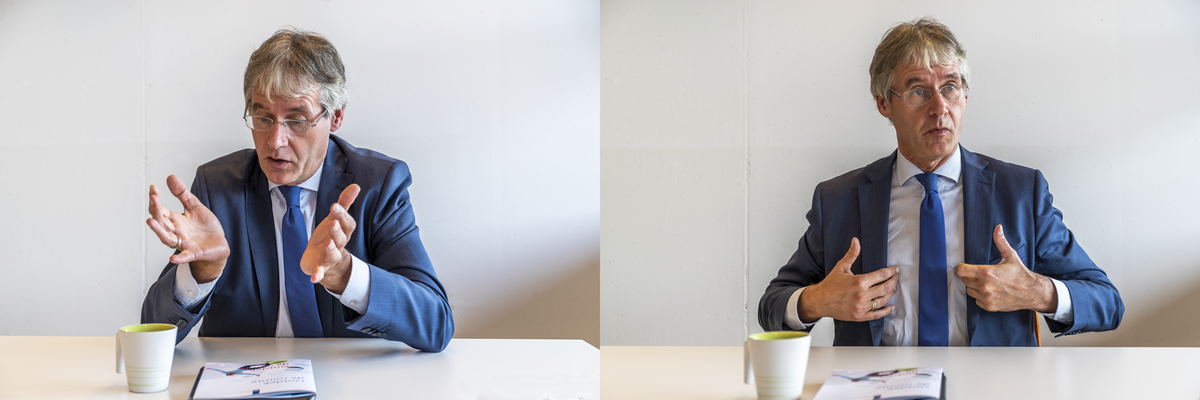
Image: Angeliek de Jonge
You can always have a discussion: is the glass half full or half empty? You also have to have an eye for what has been achieved.
Part of that story is also: the Netherlands is getting richer, but the part that goes to education is declining. Since 2016 drops the education share of the Gross Domestic Product (GDP) from 5,2 to 5 percent. Isn't that very remarkable?
“I've seen that figure too. There is a little flattening. That is the result of political choices about how we distribute the resources. ”
Does that mean that we should actually be with Minister Hoekstra of Finance?
“You can always interview colleague Hoekstra if you wish. Minister Hoekstra can no longer spend either. "
Who then makes these political choices?
"Those choices were made in the formation."
God's field
Slob was a Member of Parliament for the Christian Union for fourteen years, of which the last eight years was almost uninterrupted as parliamentary party chairman. “God's field is bigger than the Binnenhof,” he said when he announced his departure from The Hague at the end of 2015. He chose a job close to home and hearth: director of the Historical Center Overijssel in Zwolle. It would not be long before Slob returned to the national political scene. In the autumn of 2017 he was polled as Minister of Education. At that time, how much money would go to education was already fixed in coalition agreements. Slob himself was not involved in those negotiations.
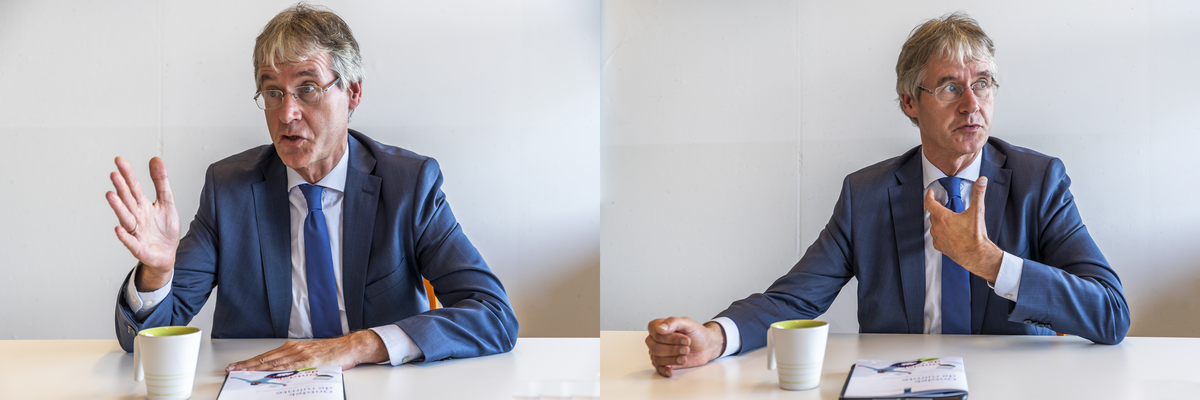
Image: Angeliek de Jonge
In the end I said: I can take this responsibility for myself.
“When I was asked to become a minister, I made a decision as to whether I would go back to The Hague. The fact that I was offered education as a portfolio certainly helped. Also the realization that responsibility must be taken in a difficult time. But it was also about the question: what agreements are on the table for education? I have seen it. I saw that very beautiful things were written down for primary education. I had of course followed the developments in the preceding period and the major education strike (on 5 October in Zuiderpark in The Hague, ed.). And I also knew that the wishes higher lower. But in the end I said: I can take this responsibility for myself. ”
Did you ask your colleague Hoekstra for more money in the run-up to Prinsjesdag?
“Budget Day? I have extra money from the coalition agreement. On top of that, you mean? So extra extra. Then you have to call it that. Someone recently said to me: there is no extra money with Budget Day. But look at the extra resources for salaries and workload reduction from the coalition agreement that we are making available. ”
Okay then, did you ask colleague Hoekstra for 'extra extra' money?
“I'm not going to make any statements about what to discuss within the cabinet, that would be very unfair. We are implementing the agreements made in the coalition agreement and this is the first budget of this government in which these agreements are reflected. I say to secondary education: you have let primary education come first this time and I am very grateful to you for that. You will receive money for technical VMBO and that is necessary. But extra money to deal with the workload went to primary education. ”
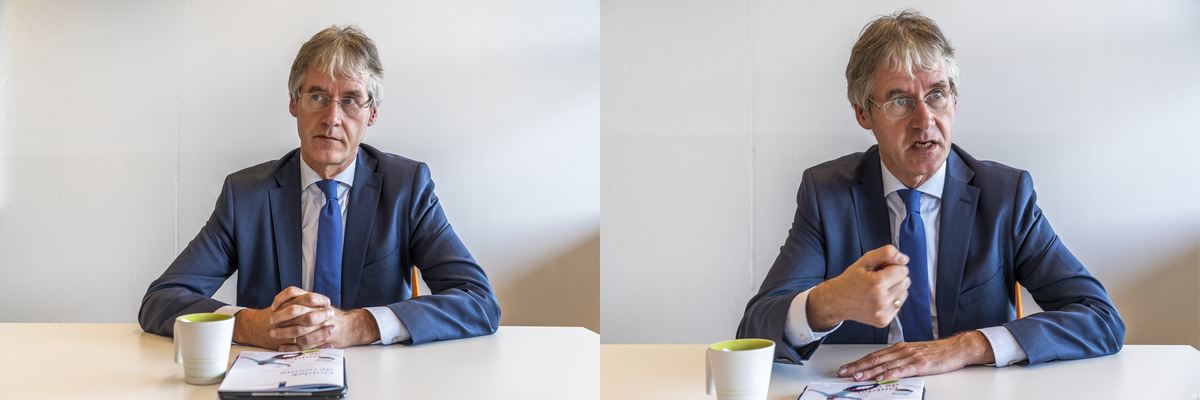
Image: Angeliek de Jonge
I say to secondary education: you have given priority to primary education this time and I am very grateful for that.
The abolition of dividend tax is canceled. Despite this, are you not going to step in to organize an additional budget for education?
“The simple conclusion that extra money could be spent if a certain measure was canceled is just a bit too fast. Ultimately, that is again a matter for the coalition parties. I can say all kinds of things very easily, but that would really be for the stage. ”
Teacher shortage
Slob calls the growing teacher shortage “one of my priority topics”. The minister of education underlined several times in the conversation that trade unions and employers are involved in the approach. “It is not a dream come true from anyone in The Hague. It's a shared story. ” Nevertheless, from the trade union movement - and from opposition parties in the House of Representatives - there is regular criticism: snapping, patchwork, sticking patches. "Money needs to be added", thus AObchairman Liesbeth Verheggen.
One of the measures that Slob is taking is to bring more side entrants and returners to the classroom. We present him with an open letter from primary school teacher Jeroen van Ginniken, who addresses the minister directly in the October issue of Onderwijsblad. Van Ginneken fears an erosion of the profession and an increase in work pressure.
Slob responds somewhat exasperated: “Lateral entrants are put to the quality bar, they are not just let go. That would indeed be an erosion of the profession. They have not followed the traditional path of four years of training, but acquired competences in a different way. And the supervision does not have to be done by the teachers. In fact, I think it is highly recommended to see if you could realize this guidance through a transfer center, for example. ”
Do you not recognize this teacher's concern?
“If that supervision were to fall on the shoulders of the teachers who are already very busy anyway, then I certainly understand that concern. At the same time, as in other professions, space must be made for people who enter in a different way. There are always people who don't immediately think after high school: I'm going into education. Suppose you missed that turn - very stupid, of course - but at a certain point you still think: that education is a very nice subject. And you have already completed a higher professional education and you have competences that can be applied well in education, but you really missed a number of things. A trajectory is made for this and you are given the space to work at a school. Should we say: we don't want you anymore? No. We do have to monitor the quality, indeed.”
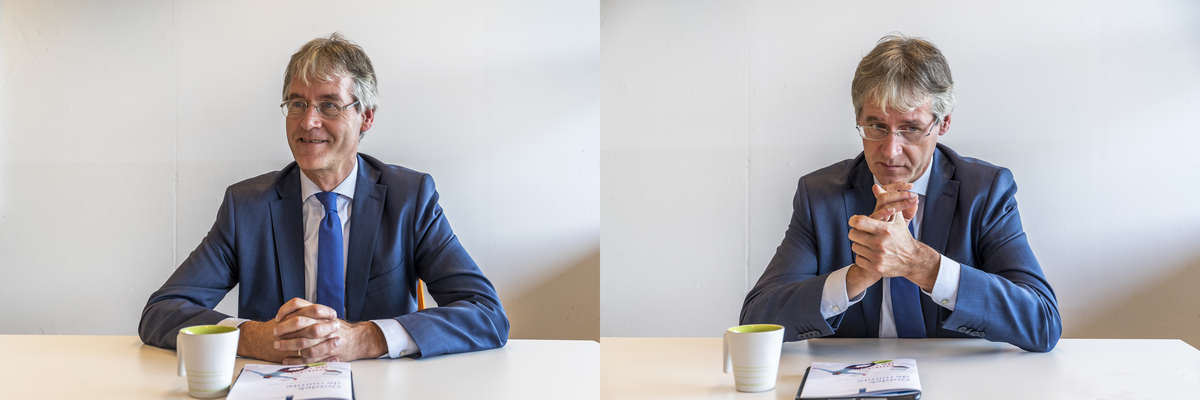
Image: Angeliek de Jonge
At a certain point, as a school, you have to set limits to monitor quality. I would only applaud it if schools did that.
In schools where the shortages are highest, that quality is most under pressure.
“Certainly, that's a big issue at the moment. We also have to be very alert to that. I understand that sometimes you have to switch briefly in emergency situations, for example when someone is ill. But at some point, as a school, you have to set boundaries to monitor quality. I would only applaud it if schools did that. ”
Are you not afraid that you will soon be remembered as the minister of the sent home classes?
“If I had to let myself be guided by what I might be afraid of, I shouldn't have come to The Hague. We must also be realistic: I cannot solve these kinds of problems on my own. We have to tackle this as a common problem. ”
As a responsible minister does that not stress you?
“I don't have to discuss my stress with you. I prefer to do that with a psychologist, and I have not called him in yet. I can also deal with that in a relaxed manner, without making things smaller than they are. It's a big topic. At my ministry they see that I talk to a lot of people about it, that I go into the country a lot to work on the subject. But if I let my feelings be held hostage by the idea that we probably cannot solve everything because it is so big, then again some sobriety helps me. This is how I was brought up: do what you can, what is within your ability. I can be held accountable for that. But you can't ask for the impossible. ”
Salary gap
In the recent, one-year collective labor agreement for primary education, the salary gap with secondary education has been narrowed, but not bridged. While both sectors are now equally valued in terms of job weight.
Is it a matter of principle for you that the salary should be equalized?
“I come back to what I have stated before. Fortunately my options were not zero, but not unlimited either. I was given the opportunity to bet 270 million. Which political choices will be made in the next period is up to the next cabinet. It doesn't suit me to anticipate that. ”
But do you think the salary difference is justified?
“I think it is very pleasant that this cabinet has realized that something really had to be done about salaries in primary education. It is very annoying that I cannot fully meet the wishes of a part of the field, but that money is not available. In any case not during this cabinet term. ”
This interview appears in the November issue of the Education Magazine. This will be added early next week AObmembers on the bus.


